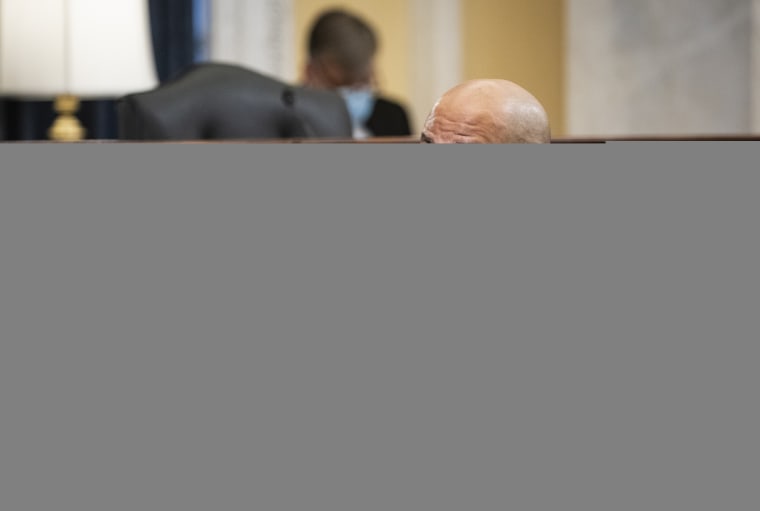Sen. Cory Booker (D-N.J.) has been more reluctant than most progressive senators to change how the institution functions -- or, too often, fails to function. The New Jersey Democrat, however, now appears to be newly open to necessary changes.
Sen. Cory Booker (D-N.J.) on Thursday joined the growing chorus of Democrats calling for reforms to the Senate's longstanding 60-vote threshold for passing legislation, arguing that congressional gridlock is preventing America from being globally competitive. "For the sake of our vulnerable populations, for the sake of America doing big things again, the filibuster has to be reformed," Booker said in an interview with HuffPost.
Of course, "reforming" the filibuster can mean many different things, and the details matter. But Booker's comments nevertheless suggest a realization that the status quo is untenable, and the Garden State senator is open to change in ways that was not previously the case.
Indeed, during Booker's run for the presidency, he stubbornly stuck to his guns and defended the Senate's existing filibuster rules. More to the point, 31 Senate Democrats signed a joint, bipartisan statement four years ago in support of preserving the legislative filibuster for the indefinite future.
Booker was one of the 31. Four years later, he agrees that "the filibuster has to be reformed."
What's more, he's not alone. As we recently discussed, Sen. Amy Klobuchar (D-Minn.) also was among the 31 Senate Dems who wanted to leave the filibuster rules intact four years ago. Now, with her party's democracy-reform package on the line, the Minnesota Democrat "would get rid of the filibuster."
Circling back to our earlier coverage, the list keeps growing. Sen. Bob Casey (D-Pa.) also signed the 2017 statement demanding that the legislative filibuster remain intact indefinitely. He's changed his mind, too.
"I'm certainly open to [ending filibusters] in ways that I would not have said I was two years ago," Casey told the Philadelphia Inquirer. "The Senate doesn't function like it used to and I think as much as I'd like to think that we can go back to those days when consensus and bipartisanship was the rule rather than the exception, now it's the opposite."
Four years ago, Sen. Sherrod Brown (D-Ohio) also signed the statement supporting the preservation of filibusters. And yet, late last year, the Ohio Democrat declared, "We've got to eliminate the filibuster." Sen. Ed Markey (D-Mass.) also endorsed the 2017 statement in support of the filibuster, and he now wants the obstructionist tactic to be abolished, too.
Sen. Jon Tester (D-Mont.) was also among the signatories, though he told the New York Times in January that he's keeping an open mind in light of GOP abuses. "I feel pretty damn strongly, but I will also tell you this: I am here to get things done," the Montanan said. "If all that happens is filibuster after filibuster, roadblock after roadblock, then my opinion may change."
If Democratic senators like West Virginia's Joe Manchin and Arizona's Kyrsten Sinema remain committed to the dysfunctional status quo, it doesn't much matter, at least for now, what the rest of the caucus thinks. But it's worth keeping in mind that this debate isn't happening in a vacuum: the more Senate Minority Leader Mitch McConnell (R-Ky.) and his members refuse to work constructively on public policy, the more they push Democrats to eye institutional reforms they used to oppose.

